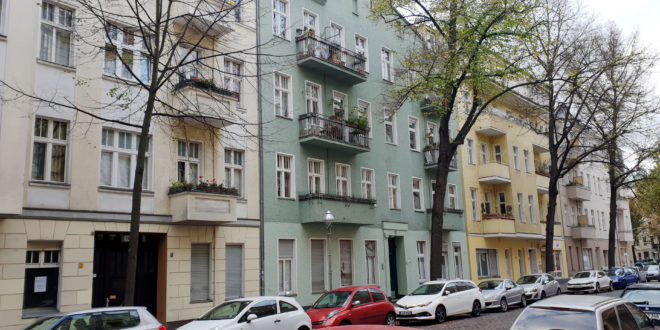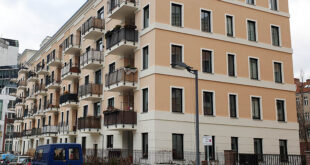Berlin’s state parliament has passed a law to freeze rent prices in the capital for five years.
The legislators by their decision on Thursday (30 January) cleared the final legal hurdle to the Berlin rent cap initiative.
The Senate of Berlin, the executive body governing the city that is also a federal state, had on 22 October approved the rent-freeze bill.
Berlin has now become the first federal state in Germany to impose a rent cap in a bid to curb soaring residential rent prices.
The rent cap law, which will enter into effect mid-February, will apply to both existing and new rental agreements.
More than 1.5 million apartments will be affected by the new law, officials say.
The rent-cap decision was taken by Berlin’s governing Red-Red-Green coalition (SPD, the Left party and Greens) in reaction to the outcry of residents who have gone to the streets in their thousands several times in recent years to protest the ever-increasing rent in the city, which has pushed many to the edge of desperation.
Rents have risen by more than 100 per cent in some parts of the metropolis in the past ten years while incomes for most workers have not risen by up to 20 per cent during the same period.
Highlights of the Law are:
- Rents are to be frozen at the level of 2013 from the beginning of 2020 for five years. Buildings constructed from 2014 are exempted from the regulation
- Landlords can charge an annual inflation-linked rent increase of 1.3% from 2022
- Rates in new tenancy agreements should not be higher than the old ones. If higher, then the upper limit provided in the city’s rent index (Mietspiegel) applies. For example, low rents of less than five euros per square meter may be increased by a maximum of one euro per square meter to a maximum of five euros per square meter.
- Renovation costs could be reflected in rent increase by a maximum of one euro per square meter. Renovation with a surcharge of two euros per square meter must be approved.
- Landlords who break the rules risk being fined up to €500,000.
Other cities in Germany could follow in Berlin’s footsteps, say analysts. For example, tenants’ groups in Munich are pushing for a six-year freeze and the city’s mayor is reported to be sympathetic to the demand. However, cities, such as Hamburg, have openly opposed a rent cap policy.
Femi Awoniyi
READ ALSO Berlin freezes rent for five years to tenants’ relief
 THE AFRICAN COURIER. Reporting Africa and its Diaspora! The African Courier is an international magazine published in Germany to report on Africa and the Diaspora African experience. The first issue of the bimonthly magazine appeared on the newsstands on 15 February 1998. The African Courier is a communication forum for European-African political, economic and cultural exchanges, and a voice for Africa in Europe.
THE AFRICAN COURIER. Reporting Africa and its Diaspora! The African Courier is an international magazine published in Germany to report on Africa and the Diaspora African experience. The first issue of the bimonthly magazine appeared on the newsstands on 15 February 1998. The African Courier is a communication forum for European-African political, economic and cultural exchanges, and a voice for Africa in Europe.




































